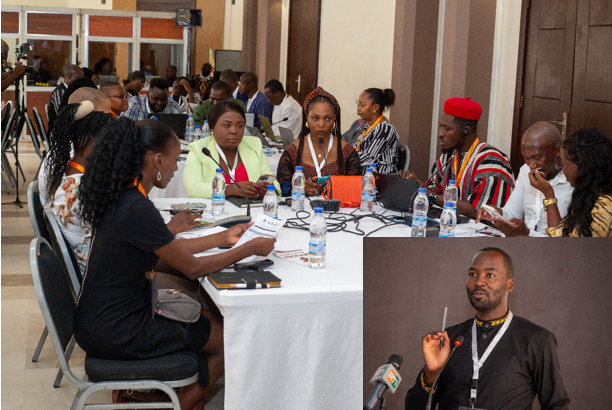By Kizito CUDJOE, Abidjan – Côte d’Ivoire
A policy analyst and advocacy officer in sovereign debt management, Shem Joshua Otieno, has raised concerns about Africa’s financial challenges amid a persistently austere global economic landscape.
He lamented that as of 2024, the continent finds itself entangled in a web of debt, with a staggering total of US$1.13trillion looming over its economies, according to the African Development Bank (AfDB).
This marks a monumental 374.8 percent increase from 2000 to 2024.
Expanding on the dire debt-to-GDP ratios affecting various African nations, Mr. Otieno pointed out that Egypt’s average stands at 86 percent, Sudan’s at an alarming 198 percent, Tunisia’s at 83 percent and Morocco’s at 70 percent. These figures vividly illustrate the economic fragility across the region.
He added that countries such as the Democratic Republic of Congo (DRC), Zambia and Mozambique are grappling with debt levels surpassing 100 percent, casting a shadow over their financial prospects.
Mr. Otieno, who works with the African Forum and Network on Debt and Development (AFRODAD), said this during the opening session of the 4th edition of African Media Debt Initiative (AFROMEDI) in Abidjan, Côte d’Ivoire.
He pointed out that private creditors are increasingly dominating the fiscal situation, which has led to a difficult financial situation.
“Over the years, these private entities have emerged as crucial sources of financing for African governments, providing an alternative route to evade the stringent conditions often attached to loans from bilateral and multilateral creditors,” he said.
Mr. Otieno anticipates Africa’s creditor landscape to remain diversified, with a significant emphasis on multilateral organisations, emerging bilateral creditors like the BRICS lenders, and the ongoing involvement of private creditors.
Regarding the causes of the continent’s substantial debt burden, he attributed the crisis to excessive government borrowing from 2012 to 2019, driven by low-interest rates.
As result, he said governments are now forced to cut spending in vital areas such as healthcare and education due to unsustainable debt levels.
He added that over 30 African countries are allocating more funds toward servicing their debt than toward critical sectors like healthcare and education—a damning indictment of the continent’s financial predicament.
The dire situation in Africa’s domestic revenue generation, he said, becomes apparent when “we take a closer look at the numbers. On average, domestic revenue accounts for only 18 percent of the GDP; and for low-income countries, this percentage is even lower – standing at a dismal 12 percent. As a result, there is a heavy reliance on public borrowing to fill the massive gap in economic financing”.
According to him, depending on international financial institutions like the IMF has its drawbacks. For instance, countries like Ghana and Zambia are compelled to seek IMF assistance with unfavourable terms and associated costs.
“The cost is paid in the form of compromised social expenditure and stringent policy adjustments. The economic reforms that come with IMF assistance often exacerbate the socio-economic plight of the citizens of these countries,” he fumed.
For example, provisional gross public debt, as reported by the Bank of Ghana (BoG), stood at GH₵569.35billion (US$51.67billion) at the end of Q1-2023, accounting for 71.1 percent of GDP. This marked a slight decrease of 20 basis points from the 71.3 percent recorded at the end of Q4-2022. This debt comprised external debt totalling GH₵322.56billion (US$29.27billion), equivalent to 40.3 percent of GDP, and domestic debt amounting to GH₵246.79billion (US$22.4 billion), representing 30.8 percent of GDP.
In nominal terms, the total public debt stock increased slightly compared to the previous quarter due to the slight improvement in the performance of the local currency against the USD by end-Q4-2022, which reduced the value of the external debt stock in cedi.
The share of domestic debt in the total portfolio decreased from 44.7 percent in Q4-2022 to 43.3 percent in Q1-2023, whereas the share of external debt increased from 55.3 percent to 56.7 percent over the same period.
The 4th edition of the AFROMEDI, organised by AFRODAD, was held under the theme ‘Empowering Media Towards an Impactful African Campaign’.
The three-day event aimed to enhance the capacity of journalists to probe the public debt on the continent.
AFRODAD is a civil society organisation established in 1996 as a regional platform and organisation for lobbying and advocating for debt cancellation and addressing other debt related issues in Africa.










